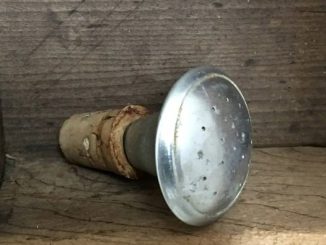A 23-year-old woman in Colorado is fighting for her life after she allegedly ate something that is found in most American pantries.
The woman, originally from Brazil, was on an exchange program in Aspen when she was overcome by a sudden onset of dizziness, double vision, and difficulty breathing.
Within 24 hours of her first symptoms, Claudia de Albuquerque Celada lost all mobility, became paralyzed, and was placed on a ventilator.
Keep reading to learn more about this horrifying incident!
Brazil’s Claudia de Albuquerque Celada was spending her winter in Aspen, Colorado on a work exchange program, “doing the [job] she always dreamed of working.”
But, in mid-February, things became a nightmare for the previously healthy 23-year-old woman, who is also an avid snowboarder.
“She took a shower, had dinner and went to bed, but she had shortness of breath, blurred vision and dizziness. She sent a message to her friends to go to her apartment,” her sister Luisa told the Portuguese media. She explains that when Claudia’s friends arrived the next morning, “my sister was already much worse, she could barely breathe on her own and she had facial paralysis. Some other very weak muscles, weak arms, weak legs. She went to the hospital and, soon after, she was 100% paralyzed.”
It took two weeks for doctors to discover the paralysis was due to botulism.
“After countless exams, tests, hospital transfer, spinal punctures and plasma transfusion, on [March 1] we had the diagnosis: botulism. It’s an extremely rare disease that destroys nerves and muscle connections, taking several months to recover.”

Botulism
Botulism, according to the Centers for Disease Control and Prevention (CDC), “is a rare but serious illness caused by a toxin that attacks the body’s nerves and causes difficulty breathing, muscle paralysis, and even death.”
The CDC also notes that “…improperly home-canned, preserved or fermented foods can provide the right conditions for spores to grow and make botulinum toxin.” The spores act like protective coatings for the bacteria, helping it survive in even in extreme conditions.

To reduce the chance of getting botulism, the CDC recommends the following:
1. Refrigerating homemade oils infused with garlic or herbs and throwing away any unused oils after 4 days.
2. Keeping potatoes that have been baked while wrapped in aluminum foil hot (at temperatures above 140°F) until they are served, or refrigerating them with the foil loosened.
3. Refrigerating any canned or pickled foods after you open them.
4. When in doubt, throw it out!
Canned soup?
Though it’s not confirmed, The Daily Mail reports that “local health officials traced the Brazilian woman’s illness back to a pre-packaged soup she bought while working in Aspen in February.”
Tests of soup samples from the same grocery store came back negative, suggesting she may not have “stored the soup at a cold enough temperature, reheated it thoroughly, or properly refrigerated the leftovers after serving.”
A spokesperson for the Pitkin County Health Department, which covers Aspen, said the incident is isolated. It also reports the exposure source has been identified and “that there is no risk to the public at this time.”

Two months later, Claudia was still at at Denver’s Swedish Medical Center, with recovery expected to last six months to a year. The family was trying to raise $200,000 “to hire an air ambulance,” and transfer the young woman back to Brazil to continue treatment. (The Daily Mail recently reported the hospital is covering the costs to return Claudia home to Brazil).
“The amount of US$200,000 would only cover the cost of transporting an air ambulance from the United States to Brazil. We don’t know what the hospitalization costs are like. We will only [know] this amount when she is discharged because it depends on many factors, such as exams and other procedures,” Luisa tells UOL, adding that Claudia’s insurance of $100,000 was exhausted by April.
Gaining strength
Meanwhile, Luisa offered an update on her sister: “She moves her fingers a little, her little toes, she’s starting to have strength in her wrist. She can now open her eye, so she can see again. But she still can’t lift her arm, leg or head.”
It is unknown at this time if Claudia is still in Denver or if she’s safely in Brazil.
We hope Claudia de Albuquerque Celada gets the continued help she needs!
What are your thoughts on this story? Please let us know your thoughts on this story and then share it so we can spread the word on reducing the risk of botulism!
Source: en.newsner.com


